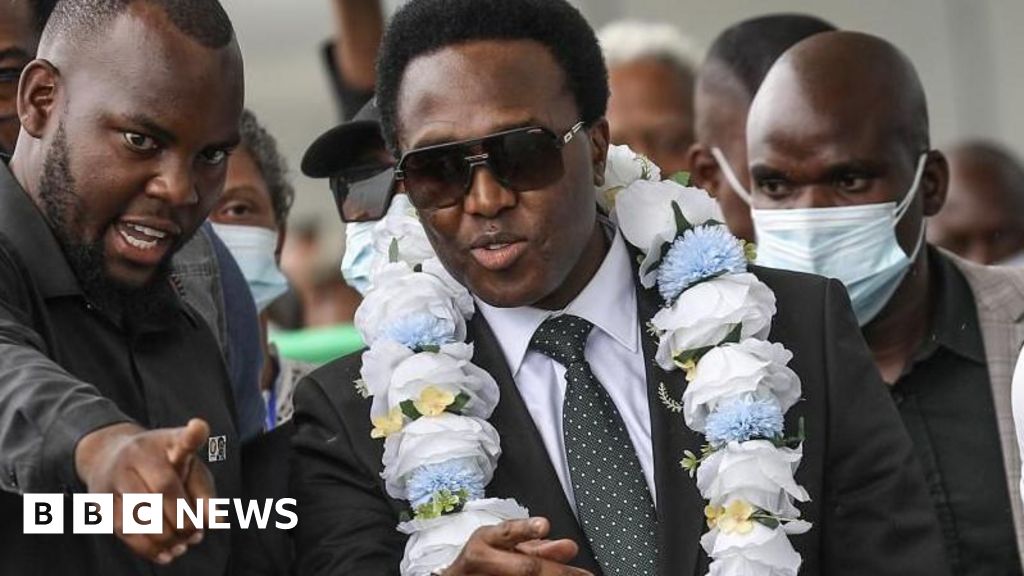ARTICLE AD BOX
Image source, AFP
Image caption,Malian soldiers have been battling jihadists for the last 10 years
Harrowing accounts are emerging of Malian troops and suspected Russian mercenaries allegedly executing about 300 people in central Mali.
Residents told Human Rights Watch (HRW) that the killings took place during an operation against militant Islamists over four days in late March.
Detained men were ordered to walk in groups of up to 10, before being summarily executed, HRW said.
"I lived in terror, each minute, each second thinking it would be my turn to be taken away and executed. Even after being told to go, I feared it was a trap," one man who witnessed some executions was quoted as saying.
"As I walked away, slowly, I held my hand on my chest, holding my breath, and waiting for a bullet to pass through my body," he added.
Mali's military admitted on Saturday that it had killed more than 200 militants in a "large-scale" assault on the "terrorist fief" of Moura.
The West African nation's junta denies that mercenaries from Russia's Wagner group are helping it fight the insurgents.
On Tuesday, Germany joined the US, France and the European Union to call for an independent investigation, involving the UN mission in the country, into what happened in the village of Moura, which is in Mali's central Mopti region.
In its statement, HRW said there had been a "deliberate slaughter" of people detained.
"The Malian government is responsible for this atrocity, the worst in Mali in a decade, whether carried about by Malian forces or associated foreign soldiers."
HRW described Moura as being under the "quasi-control" of al-Qaeda in the Islamic Maghreb (Aqim).
It quoted a local as saying that some of those killed "were really jihadists, but many others were killed simply because they had been forced by the same jihadists to cut their pants and grow their beards".
Others said the killings were ethnically based, with the Fulani, largely Muslim semi-nomadic herders known in Mali as the Peulh, targeted.
What happened?
HRW said it had learned from 19 witnesses, including those from Moura and six other villages, that soldiers arrived by helicopter near the livestock market on 27 March and exchanged gunfire for some 15 minutes with about 30 Islamist fighters.
"Traders at the market and security sources said that several Islamist fighters, a few civilians, and two foreign soldiers were killed during this and another exchange of gunfire that day," HRW reported.
Malian soldiers and more than 100 members of a foreign force - identified by several sources as Russians - were then deployed to Moura for an operation that lasted for four days.
"After surrounding the area, the soldiers patrolled through town, executing several men as they tried to flee, and detaining hundreds of unarmed men from the market and their homes," HRW said.
"Over the four days, the soldiers ordered the detained men in groups of four, six, or up to 10, to stand up and walk for between several dozen and several hundred metres. There, the Malian and foreign soldiers summarily executed them."
Mali has been battling a decade-long insurgency that has affected millions of people, and has also engulfed out countries in the region.
French troops have played a major role in fighting the insurgents, but in February President Emmanuel Macron announced their withdrawal.
It followed a breakdown in relations with the military junta, which has been accused of increasingly turning to Russia for aid to fight the militants.
Mali is a former French colony, and maintained strong ties with France after independence in 1960.
The BBC's Anne Soy considers the impact of France's decision to leave Mali on the fight against jihadists

 2 years ago
39
2 years ago
39









 English (US) ·
English (US) ·